Gwyneth Paltrow, Leonardo DiCaprio and Johnny Depp have all proven that celebrity status can have an impact in the courtroom as stars deal with legal troubles.
Paltrow and DiCaprio recently made appearances on the witness stand, while Depp captivated fans throughout an explosive six-week trial about abuse. Alec Baldwin is preparing for his trial on involuntary manslaughter charges for the fatal shooting of “Rust” cinematographer Halyna Hutchins.
As Baldwin’s trial approaches, Fox News Digital spoke to legal experts who explained how celebrity impacted each case.
Paltrow was awarded $1 by a jury March 30 after an eight-day civil trial in which she was accused of causing a ski collision. A juror came forward after the verdict was announced and noted that the actress’ celebrity status did factor into her thinking.
GWYNETH PALTROW WINS SKI CRASH LAWSUIT
Gwyneth Paltrow testified in her civil trial. (Rick Bowmer)
“I think there was, in the back of my mind, yes, this woman’s an actress and I took that into account, but I didn’t feel she had a reason to lie under oath,” the juror told ABC News. “She’s always in the spotlight, so she always has to be honest.”
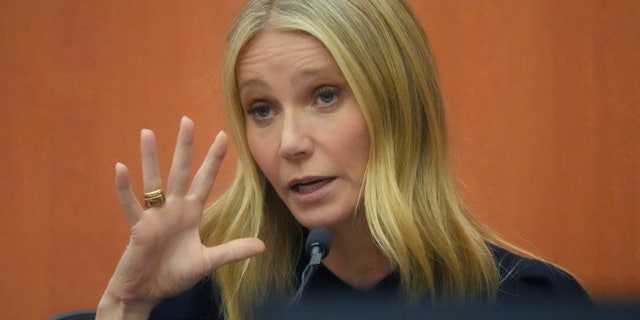
Gwyneth Paltrow was awarded $1 by a jury after being found not at fault for a 2016 ski collision. (Rick Bowmer-Pool)
However, the juror explained that she treated Paltrow the same as everyone else.
“I think it’s important that the public doesn’t just think that this was a win because Gwyneth’s a celebrity. I mean, this is based on the evidence. This is based on the law,” she emphasized. “I do work in medicine, and you have to look at everyone the same. So, I think that that should apply in the courtroom as well.”
Legal expert Sophie Jacobi-Parisi noted that celebrity status can affect jurors’ perception of testimony.
GWYNETH PALTROW’S SKI CRASH VICTORY VINDICATES MALIGNED ACTRESS TURNED LIFESTYLE GURU
“If people are used to watching a celebrity on screen, they may have a hard time differentiating the celebrity’s role from the live testimony,” explained Jacobi-Parisi, a partner in Blank Rome’s matrimonial department.
“We also know that celebrities have different social capital; someone like Gwyneth Paltrow, who has decades of being a superstar, and who holds herself out as a serious actress, mother and entrepreneur, is likely to be taken more seriously on the witness stand than someone who is a reality TV star or YouTube influencer — or a celebrity who has a reputation for being unkind to fans or difficult to work with on set.”
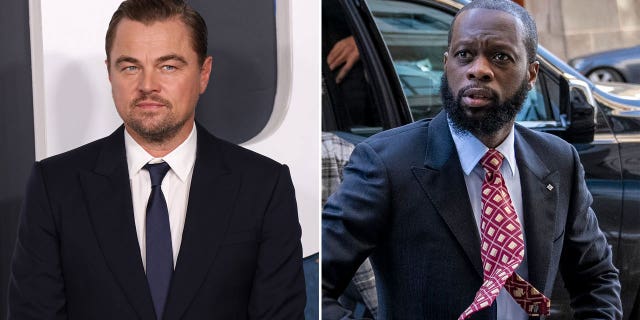
Leonardo DiCaprio testified in a federal court case involving the founder of The Fugees. (Getty Images/Associated Press)
Leonardo DiCaprio appeared in federal court Monday and testified in a case about international money laundering. The “Titanic” actor’s presence in the courtroom was well received by the jury, according to legal expert Neama Rahmani.
“Jurors were falling asleep. All of a sudden, he walks in and everyone starts paying attention,” the former federal prosecutor told Fox News Digital. “Jurors love celebrities, and they do very, very well at trial.”
Ordinary people who are witnesses don’t always do as great on the stand, the expert explained.
“When a celebrity takes the stand, the jurors pay attention to every word, and that’s just not the case with other types of witnesses,” Rahmani noted.
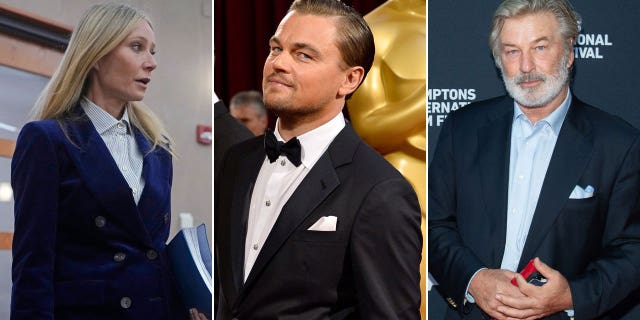
Gwyneth Paltrow, Leonardo DiCaprio, Alec Baldwin (Getty Images)
“When celebrities testify, it’s just different,” he continued. “It’s someone that you don’t see every day and hear from every day and all that type of stuff. For whatever reason, there’s just a completely different psychology when it comes to celebrity witnesses and celebrity parties than there are just ordinary people.”
GWYNETH PALTROW’S CONSERVATIVE COURT FASHION EARNS EASY WIN: LEGAL EXPERTS
Whether a celebrity is famous or infamous is also important, according to celebrity branding expert Doug Aldridge.
“It’s almost like a plate of fajitas at Chili’s. Everyone knows what I’m talking about. If the table next to you orders that steaming entree, your shirt, jacket, or dress will still smell like it four days later,” he explained by way of analogy. “When you walk into work, you’ll smell like beef fajitas for two. So too is the case for celebrities. When they enter the courtroom, they bring their ‘stank’ with them. That’s why the dichotomy between famous and infamous is far more substantive than semantics.”

Alec Baldwin is set to appear in a courtroom May 3 for a preliminary hearing. (Santa Fe County Sheriff’s Office)

Alec Baldwin is charged with involuntary manslaughter in the death of Halyna Hutchins. (Santa Fe County Sheriff’s Office)
Alec Baldwin is someone who could be seen either way, according to Aldridge. Baldwin has been charged with involuntary manslaughter in the death of Halyna Hutchins and will face a judge during a preliminary hearing beginning May 3.
CLICK HERE TO SIGN UP FOR THE ENTERTAINMENT NEWSLETTER
“The dude is a great actor, not a very likable guy,” he explained. “And so that’s why I said from the jump there’s an important distinction between famous and infamous. Who will they see in the courtroom? Will they see the charismatic, award-winning actor that can charm the room and crush the box office and the Nielsen ratings? Or will they see the infamous person who was horribly short-tempered, foul-mouthed, abusive to seemingly the weakest in the room?
“Who are they going to see? The famous person or the infamous person?”
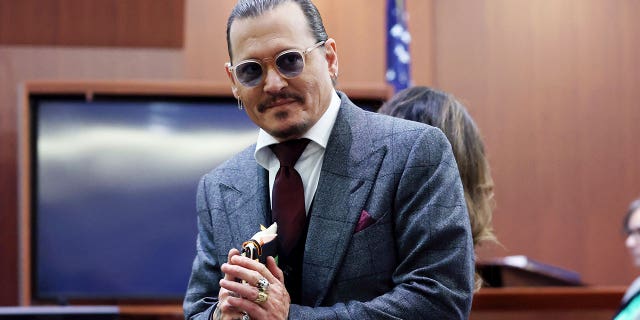
Johnny Depp won his defamation case against ex-wife Amber Heard. (Michael Reynolds)
Johnny Depp is another example of how celebrity status impacted a courtroom. Depp won a defamation case after he accused ex-wife Amber Heard of fabricating abuse allegations against him to further her career.
Depp was a great witness, one who was open and vulnerable, according to former federal prosecutor Rahmani.
“Johnny Depp was probably one of the best witnesses I’ve ever seen take the stand,” he told Fox News Digital. “He was very honest and genuine. He talked about the abuse he suffered at the hands of his parents, particularly his mother.”
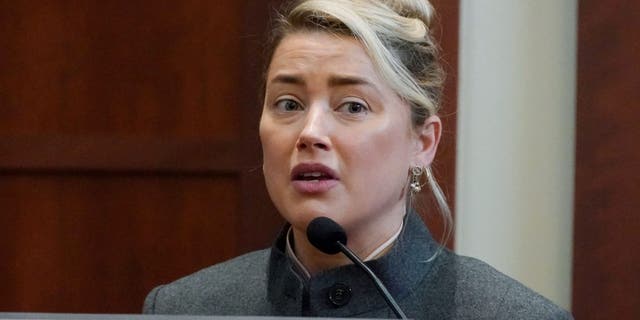
Amber Heard was seen as defensive and a liar during her testimony, according to a legal expert. (Steve Helber)
Rahmani emphasized that Heard didn’t have an impact like Depp during the trial because her “celebrity status” wasn’t the same.
“Johnny Depp is an A-plus list celebrity, and Amber Heard is just not that,” he explained. He also noted that Heard was “defensive” and lied on the stand.
“Once it was clear that she was being dishonest — and she already was at a significant disadvantage because she was dealing with someone like Johnny Depp — it was clear that she was going to lose,” Rahmani explained.
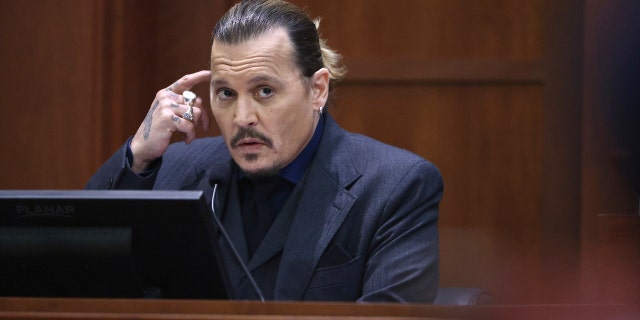
Johnny Depp testified in a six-week trial. (Jim Lo Scalzo)
Throughout the six-week trial between Depp and Heard, Depp saw support from tons of fans online and in person.
“Johnny Depp’s fan base spans generations and many beloved movies, and the power of that fan base in this country was significantly underestimated,” Jacobi-Parisi said. “His fan base showed up for him on social media and in person at the courthouse in numbers beyond what anyone predicted.
“In addition, the livestreaming of the trial allowed for his fans to weigh in on every word and every movement of every person in the cast of characters in the courtroom, turning regular people into jury consultants and investigators,” she added. “The weight of celebrity adoration of Johnny Depp was a factor in the win.”
ALEC BALDWIN SHOULD ‘KEEP HIS MOUTH SHUT’ AMID CHARGES IN FATAL ‘RUST’ SHOOTING: LEGAL EXPERTS
Although Baldwin has a celebrity status similar to Depp’s, the actor might run into issues considering how “polarizing” he is, according to legal experts.
“Similar to Johnny Depp, the celebrity of Alec Baldwin and the Baldwin family spans generations and many TV shows and movies. However, over the years, Alec has been a polarizing celebrity,” Jacobi-Parisi explained. “From his contentious divorce with Kim Basinger and the nasty voicemail he left his teen daughter that was released to the press to accusations of his current wife’s alleged fake Spanish accent to his political views, Alec has had a mixed fan base.
“There is probably a large group of people who find Alec’s performances in ‘SNL’ or ‘30 Rock’ hilarious but still find him incredible in terms of his veracity and ability to be genuine.”
The impact Baldwin has on the jury depends on his ability to present his famous persona to the jury, according to Aldridge.
CLICK HERE TO GET THE FOX NEWS APP
“It depends whether jurors can bifurcate and disambiguate the famous actor from the infamous person. One is exceptional, the other is acerbic. In Baldwin’s case, likability is a plum-line to liability,” Aldridge said. “His legal team is already working off its backfoot in the perception battle. If jurors wouldn’t pay to see your movie or change the channel when your show comes on — and then they hear bad things about you on top of that — sometimes there’s a short distance between perception and prosecution.”